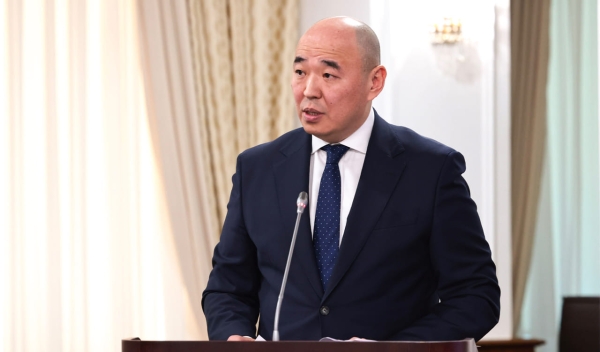Kazakhstan’s construction industry has demonstrated robust growth, with the volume of construction work reaching KZT 6.9 trillion ($13.5bn) in the first 11 months of this year, marking a 10.3% increase compared to the same period last year. Minister of Industry and Construction Kanat Sharlapaev presented these achievements during a government meeting, highlighting the sector’s contribution to the nation’s economy.

The construction sector now accounts for 5.6% of Kazakhstan’s GDP and employs approximately 670,000 individuals across 53,000 enterprises. This year, the government aims to deliver a record-breaking 18mn square meters of housing, a 44% rise compared to 2018. By November’s end, 16.3mn square meters had already been commissioned, with another 1.7mn square meters expected by year-end.
“The ministry has taken unprecedented measures to stimulate housing construction. A total of KZT 965bn ($1.9bn) has been allocated for this purpose, providing homes for more than 160,000 citizens across 41,000 new apartments,” Sharlapaev stated.
To support affordable housing, KZT 330bn ($645.7mn) has been allocated for the purchase of over 22,000 rental apartments. Additionally, over 10,000 credit apartments are expected to be delivered through government securities worth KZT 165bn ($322.9mn).
Kazakhstan has also issued preferential mortgage loans with interest rates ranging from 2% to 5%, enabling 7,800 loans to date. Moreover, KZT 83bn ($162.4mn) has been allocated for utility infrastructure in residential areas, including KTZ 34bn ($66.5mn) to connect 21,000 land plots.
The “Nauryz” housing program launched in May 2024 aims to provide 12,000 loans totaling KZT 300bn ($587mn) this year, with 6,000 loans worth KZT 172bn ($336.5mn) already issued.

As part of housing reforms, the government has transferred housing registration and distribution functions to Otbasy Bank, now a National Development Institute. The new system prioritizes housing allocation based on registration date and income level, benefiting long-term waiting list applicants. Additionally, a new law allows the privatization of rental housing without purchase rights, impacting over 50,000 citizens.
To address illegal construction and poor-quality urban planning, the Ministry introduced urban planning expertise this year. This ensures compliance with architectural standards during the planning phase, preventing deviations.
“We are building a unified digital ecosystem for the construction industry, covering a project’s lifecycle from planning to demolition,” Sharlapaev explained. The GBIM system, set to replace the current examination portal, will streamline research, design, and examination processes into a single interface.
A draft Construction Code currently under parliamentary review seeks to tighten industry regulations. Proposed measures include certification for experts, liability insurance, and the use of seismic isolation systems in earthquake-prone areas.
These initiatives aim to eliminate unscrupulous developers, improve professional standards, and enhance construction quality, ensuring safer and more comfortable living conditions for Kazakhstan’s citizens.




